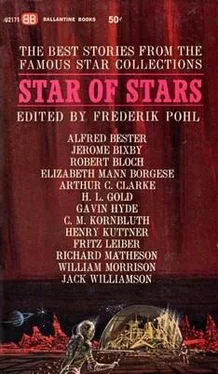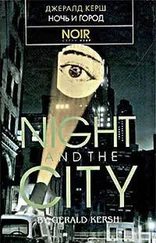Джералд Керш - Whatever Happened to Corporal Cuckoo?
Здесь есть возможность читать онлайн «Джералд Керш - Whatever Happened to Corporal Cuckoo?» весь текст электронной книги совершенно бесплатно (целиком полную версию без сокращений). В некоторых случаях можно слушать аудио, скачать через торрент в формате fb2 и присутствует краткое содержание. Год выпуска: 1960, Издательство: Ballantine Books, Жанр: Фантастика и фэнтези, на английском языке. Описание произведения, (предисловие) а так же отзывы посетителей доступны на портале библиотеки ЛибКат.
- Название:Whatever Happened to Corporal Cuckoo?
- Автор:
- Издательство:Ballantine Books
- Жанр:
- Год:1960
- ISBN:нет данных
- Рейтинг книги:4 / 5. Голосов: 1
-
Избранное:Добавить в избранное
- Отзывы:
-
Ваша оценка:
- 80
- 1
- 2
- 3
- 4
- 5
Whatever Happened to Corporal Cuckoo?: краткое содержание, описание и аннотация
Предлагаем к чтению аннотацию, описание, краткое содержание или предисловие (зависит от того, что написал сам автор книги «Whatever Happened to Corporal Cuckoo?»). Если вы не нашли необходимую информацию о книге — напишите в комментариях, мы постараемся отыскать её.
Whatever Happened to Corporal Cuckoo? — читать онлайн бесплатно полную книгу (весь текст) целиком
Ниже представлен текст книги, разбитый по страницам. Система сохранения места последней прочитанной страницы, позволяет с удобством читать онлайн бесплатно книгу «Whatever Happened to Corporal Cuckoo?», без необходимости каждый раз заново искать на чём Вы остановились. Поставьте закладку, и сможете в любой момент перейти на страницу, на которой закончили чтение.
Интервал:
Закладка:
Gerald KERSH
Whatever Happened to Corporal Cuckoo?
Several thousand officers and privates of the U. S. Army who fought in Europe in World War II can bear witness to certain basic facts in this otherwise incredible story.
Let me refresh my witnesses' memories:
The Cunard White Star liner Queen Mary sailed from Greenock, at the mouth of the river Clyde, on July 6th, 1945, bound for New York, packed tight with passengers. No one who made that voyage can have forgotten it: there were fourteen thousand men aboard; a few ladies; and one dog. The dog was a gentle, intelligent German shepherd, saved from slow and painful death by a young American officer in Holland. I was told that this brave animal, exhausted, and weak with hunger, had tried to jump over a high barbed-wire fence, and had got caught in the barbs on the top strand, where it hung for days, unable to go forward or backward. The young officer helped it down, and so the dog fell in love with the man, and the man fell in love with the dog. Pets are not allowed on troopships. Still, the young officer managed to get his dog on board. Rumor has it that his entire company swore that they would not return to the United States without the dog, so that the authorities were persuaded to stretch a point, just for once; this is what Kipling meant when he referred to The Power Of The Dog. Everyone who sailed on the Queen Mary from Greenock on July 6th, 1954, remembers that dog. It came aboard in a deplorable state, arching its bedraggled back to ease its poor injured stomach, and when you stroked it, you felt its skeleton under the sickly, staring coat. After about three days of affectionate care—half a hundred strong hungry men begged or stole bits of meat for its sake—the dog began to recover. By July 11th, when the Queen Mary docked in New York, the dog was taking a dog's interest in a soft rubber ball with which several officers were playing on the sun deck.
I bring all this back into memory to prove that I was there, as a war correspondent, on my way to the Pacific. Since I was wearing battledress and a beard, I also must have been conspicuous, that voyage. And the secret school of illicit crapshooters must remember me with nostalgic affection: I arrived in New York with exactly fifteen cents, and had to borrow five dollars from an amiable Congregationalist minister named John Smith, who also will testify to the fact that I was on board. If further evidence were needed, a lady nurse, Lieutenant Grace Dimichele, of Vermont, took my photograph as we came into port.
But in the excitement of that tremendous moment, when thousands of men were struggling and jostling, laughing and crying, and snapping cameras at the New York skyline, which is the most beautiful in the world, I lost Corporal Cuckoo. I have made exhaustive inquiries as to his whereabouts, but that extraordinary man had disappeared like a puff of smoke.
Surely, there must be scores of men who retain some memory of Cuckoo, whom they must have seen hundreds and hundreds of times on the Queen Mary between July 6th and July 11th, 1945?
He was a light-haired man of medium height, but he must have weighed at least a hundred and ninety pounds, for he was ponderously built, and had enormously heavy bones. I beg my fellow passengers to remember, if they can. He had watery eyes of greenish-gray, and limped a little on his right leg. His teeth were powerful—large, square and slightly protruding; but generally he kept them covered with his thick, curiously wrinkled lips. People in general are unobservant, I know, but no one who saw Corporal Cuckoo could fail to remember his scars. There was a frightful indentation in his skull, between his left eyebrow and his right ear. When I first noticed him, I remembered an ax murder at which I shuddered many years ago when I was a crime reporter. He must have an extraordinary constitution if he lives to walk around with a scar like that, I thought. His chin and throat were puckered scar tissue such as marks the place where flesh has been badly burned and well healed. Half of his right ear was missing and close by there was another scar, from cheekbone to mastoid. The back of his right hand appeared to have been hacked with a knife —I counted at least four formidable cuts, all old and white and deep. He conveyed this impression: that a long time ago, a number of people had got together to butcher him with hatchets, sabers, and knives, and that in spite of their most determined efforts he had survived. For all his scars were old. Yet the man was young—not more than thirty-five, as I guessed.
He filled me with a burning curiosity. One of you must remember him! He went about, surly and unsociable, smoking cigarettes which he never took out of his mouth—he smoked them down and spat the ends out only when the fire touched his lips. That, I thought, must be why his eyes are so watery. He moped about, thinking, or brooding. He was particularly addicted to loitering on the stairs and lurking in dark corners. I made tentative inquiries about him around the decks; but just then everyone was passionately interested in an officer who looked like Spencer Tracy. But in the end I found out for myself.
Liquor, also, was prohibited on troopships. Having been warned of this, I took the precaution of smuggling some bottles of whiskey aboard. On the first day out I offered a drink to a captain of infantry. Before I knew where I was, I had made seventeen new friends who overwhelmed me with affability and asked for my autograph; so that on the second day, having thrown the last of the empty bottles out of the porthole, I was glad to sponge a drink off Mr. Charles Bennett, the Hollywood playwright. (He, too, if his modesty permits, will bear witness that I am telling the truth.) He gave me a ginger-ale bottle full of good Scotch, which I concealed in the blouse of my battledress, not daring to let any of my friends know that I had it. Late in the evening of the third day, I withdrew to a quiet spot where there was a strong-enough diffusion of yellow light for me to read by. I intended to struggle again through some of the poems of Francois Villon, and to refresh myself at intervals with a spot of Mr. Bennett's Scotch. It was hard to find an unoccupied place beyond locked doors on the Queen Mary at that time, but I found one. I was trying to read Villon's Ballade of Good Counsel, which that great poet wrote in medieval underworld slang, which is all but incomprehensible even to erudite Frenchmen who have studied the argot of the period. I repeated the first two lines aloud, hoping to talk some new meaning into them:
Car ou soie porteur de bulles
Pipeur ou hasardeur de dez
Then a languid voice said: "Hello there! What do you know about it?"
I looked up and saw the somber, scarred face of the mysterious corporal half in and half out of the shadows. There was nothing to do but offer him a drink, for I had the bottle in my hand, and he was looking at it. He thanked me curtly, half emptied the little bottle in one gulp and returned it to me. "Pipeur ou hasardeur de dez, " he said, sighing. "That's old stuff. Do you like it, sir?"
I said, "Very much indeed. What a great man Villon must have been. Who else could have used such debased language to such effect? Who else could have taken thieves' patter—which is always ugly—and turned it into beautiful poetry?"
"You understand it, eh?" he asked, with a half laugh.
"I can't say that I do," I said, "but it certainly makes poetry."
"Yes, I know."
"Pipeur ou hasardeur de dez. You might as well try to make poetry out of something like this, `I don't care if you run some Come-to-Jesus racket, or shoot craps ... I'
Читать дальшеИнтервал:
Закладка:
Похожие книги на «Whatever Happened to Corporal Cuckoo?»
Представляем Вашему вниманию похожие книги на «Whatever Happened to Corporal Cuckoo?» списком для выбора. Мы отобрали схожую по названию и смыслу литературу в надежде предоставить читателям больше вариантов отыскать новые, интересные, ещё непрочитанные произведения.
Обсуждение, отзывы о книге «Whatever Happened to Corporal Cuckoo?» и просто собственные мнения читателей. Оставьте ваши комментарии, напишите, что Вы думаете о произведении, его смысле или главных героях. Укажите что конкретно понравилось, а что нет, и почему Вы так считаете.






